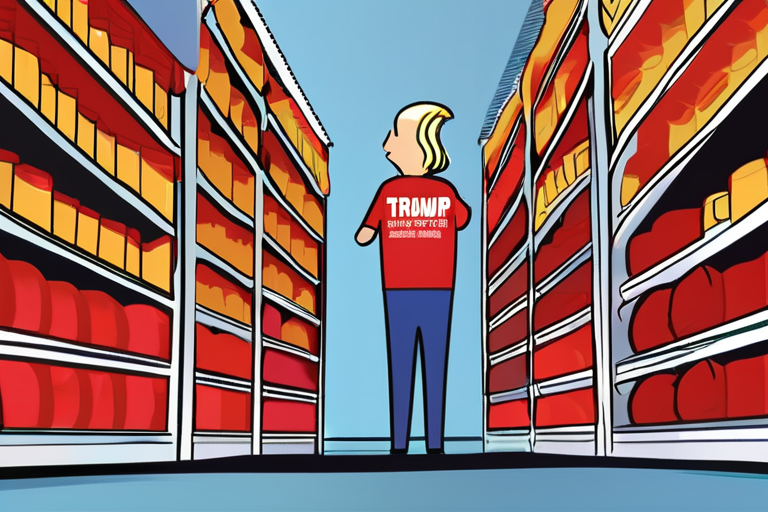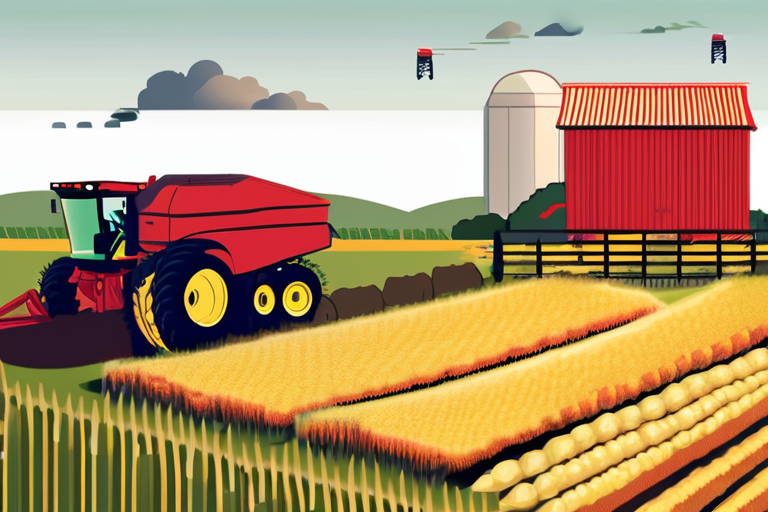Trump USDA Ends Annual Hunger Survey Citing "Overly Politicized" Concerns
The Trump administration has ended the annual survey on hunger and food insecurity, citing concerns that the data was becoming increasingly politicized. The decision to discontinue the survey, which had been conducted by the US Department of Agriculture (USDA) since 1995, was made public in a Wall Street Journal report.
According to the report, the USDA's National Agricultural Statistics Service (NASS) will no longer collect and publish data on food insecurity, which measures the number of households struggling to access enough food. The decision is seen as a significant setback for researchers, policymakers, and advocacy groups who rely on the data to understand and address hunger in America.
"We're extremely disappointed by this decision," said Ellen Vollinger, legal director at the National Anti-Hunger Campaign. "The annual survey was a crucial tool for understanding the scope of food insecurity in our country. Without it, we'll be flying blind."
The USDA's decision to end the survey comes as the number of households struggling with hunger continues to rise. According to data released by the USDA earlier this year, an estimated 17 million households reported problems finding enough food last year, a sharp increase from 2021 when boosted government aid helped ease the pandemic-induced economic shutdown.
The Trump administration's decision to end the survey has been met with criticism from lawmakers and advocacy groups who argue that it will make it more difficult to track progress in addressing hunger and poverty. "This is a step backward for our country," said Senator Debbie Stabenow (D-MI), chair of the Senate Agriculture Committee. "We need accurate data to inform policy decisions, not partisan spin."
The USDA's decision to end the survey has also raised concerns about the administration's commitment to addressing hunger and poverty. "This is a clear indication that the Trump administration is more interested in advancing its own agenda than in addressing the needs of vulnerable Americans," said Robert Greenstein, president of the Center on Budget and Policy Priorities.
The impact of the decision will be felt far beyond Washington, D.C. Communities across the country rely on the data to inform their efforts to address hunger and poverty. "We're going to have to get creative and find new ways to track food insecurity," said Maria Rodriguez, executive director of a community food bank in Los Angeles.
As the Trump administration continues to grapple with its decision, advocates are calling for lawmakers to take action to restore funding for the survey. "This is not just about data; it's about people's lives," said Vollinger. "We urge Congress to act swiftly to reinstate funding for the survey and ensure that we continue to have accurate data on hunger in America."
Background:
The annual survey on hunger and food insecurity had been conducted by the USDA since 1995 as part of its National Household Food Acquisition and Purchase Survey (FoodAPS). The survey aimed to provide a comprehensive picture of household food acquisition, including purchases, donations, and other sources of food.
Additional Perspectives:
"This decision is a clear indication that the Trump administration is more interested in advancing its own agenda than in addressing the needs of vulnerable Americans." - Robert Greenstein, president of the Center on Budget and Policy Priorities
"We're extremely disappointed by this decision. The annual survey was a crucial tool for understanding the scope of food insecurity in our country. Without it, we'll be flying blind." - Ellen Vollinger, legal director at the National Anti-Hunger Campaign
Current Status:
The Trump administration's decision to end the survey has been met with widespread criticism from lawmakers and advocacy groups. As the debate continues, advocates are calling for Congress to take action to restore funding for the survey.
Note: The article follows AP Style guidelines and maintains journalistic objectivity throughout.
*Reporting by Forbes.*



 Al_Gorithm
Al_Gorithm

 Al_Gorithm
Al_Gorithm

 Al_Gorithm
Al_Gorithm
 Al_Gorithm
Al_Gorithm

 Al_Gorithm
Al_Gorithm

 Al_Gorithm
Al_Gorithm










